
Hi Gundija and Krystal, great to meet you both, can you give our readers some background information on yourself please?
Gundija: I am an independent contemporary dance artist based in Cardiff. Originally from Latvia, I have trained and worked in dance in Denmark and England, but now I have found my home in Wales – I have been living and working here for over 5 years now. I am also the Executive Director of Kokoro Arts.
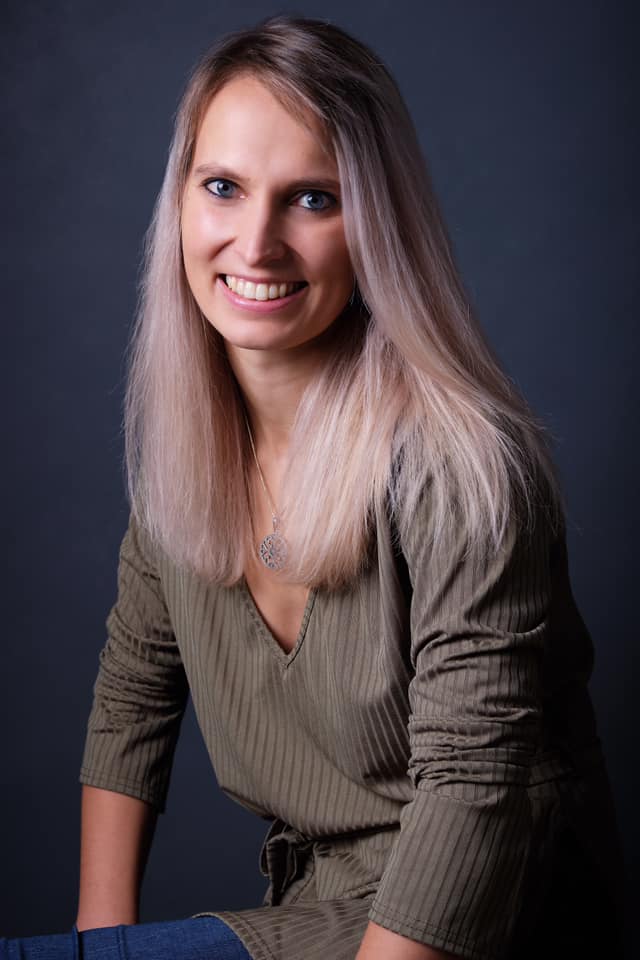
Krystal: I grew up in Bermuda, in a green bungalow with my seven siblings and our parents. I continued dancing at my local dance schools until I moved to Wales in 2012, to dance with Ballet Cymru. Currently, I’m a freelance dance artist, choreographer, writer and emerging director, based in Newport. I am the Artistic Director of Kokoro Arts.

What got you interested in the arts?
Krystal: The arts have always been a part of me, my maternal grandmother is a mixed media artist. She creates sculptures and paintings, and uses found objects and transforms them into intricate works of art. Her house is the most beautiful and colourful place I’ve ever experienced – hand painted floor rugs and walls covered floor to ceiling with her artwork. My grandmother’s sisters were all writers, musicians, poets and fashion designers. My mother is a writer and would paint the ceiling in our kitchen into the image of the day sky. Growing up I was always taught to think differently, creatively; the house was filled with books and blocks and painted walls. The arts are an integral aspect of my identity and culture.
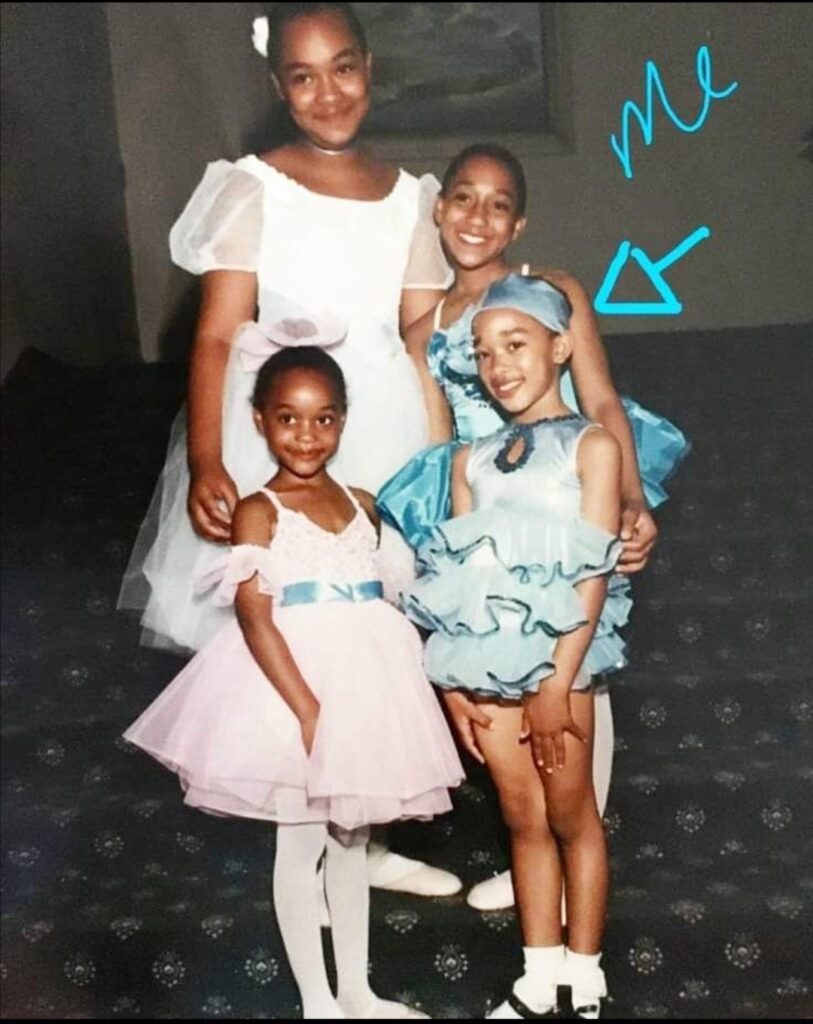
Gundija: I have always been exposed to art when growing up – theatre performances, outdoor exhibitions, social cultural events, strong Folk dance and national singing traditions. Once dancing became my choice (rather than my parents) – I was exposed to different new dance styles, which led me to viewing dance as an art form not just a fun (and tough) movement activity. Through new international friendships – eventually collaborations – I started immersing myself into other art forms on a more professional level.
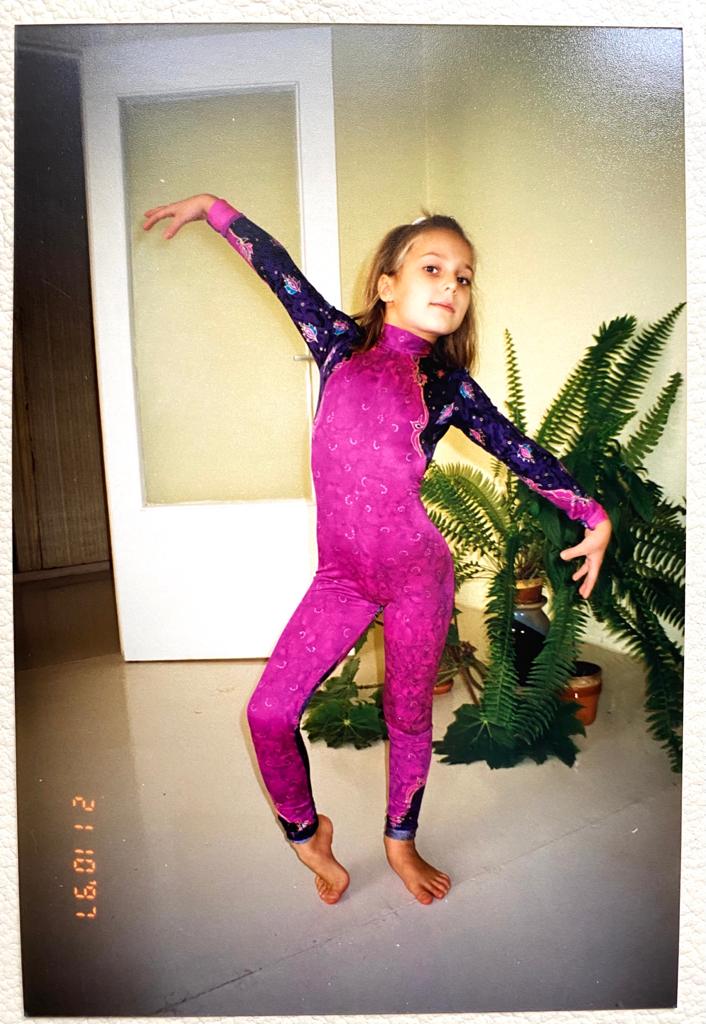
Together you run Kokoro Arts, the organisations mission is “Kokoro Arts supports and promotes the development and work of young artists, facilitates sector-wide discussion and champions inclusion, accessibility and diversity throughout the Wales dance sector.”
How did the organisation develop and what are you working on at the moment?
The organisation developed out of passion and love; passion for the arts and a love for Wales – its culture and the wide diversity of the people here. It developed through conversation; through seeing the gaps in the sector and finding a way that we could fill them. We saw that there was a lack of support for young/early career artists, and we each understood what that lack of support feels like. We decided that we wanted to connect those artists with opportunities, with the sector, and to offer support for their development.

We offer support to young artists through 1-2-1 sessions, bespoke advice and feedback, application and CV writing support, sharing monthly opportunities, and ensuring we offer an open door for any questions/concerns they have. Also, we build and support networks, individually and as a company. Through the company last year we facilitated dance sector conversations and through that, the Wales Dance Network was formed. The Wales Dance Network | Rhwydwaith Dawns Cymru continues to bring the Wales dance sector together and we’re part of that steering group. We began an EU Artist Network, to be a support to artists living away from their home countries, and to share contacts and networks within that group. These connections are very important to us and our work.
Currently, we’re working on an incredible Arts Council Wales funded ‘Connect and Flourish’ project – Emerging Artists: Access, Inclusion, Connection – which will offer five early career artists the opportunity to collaboratively explore how access and inclusion can be integral to their movement practice.
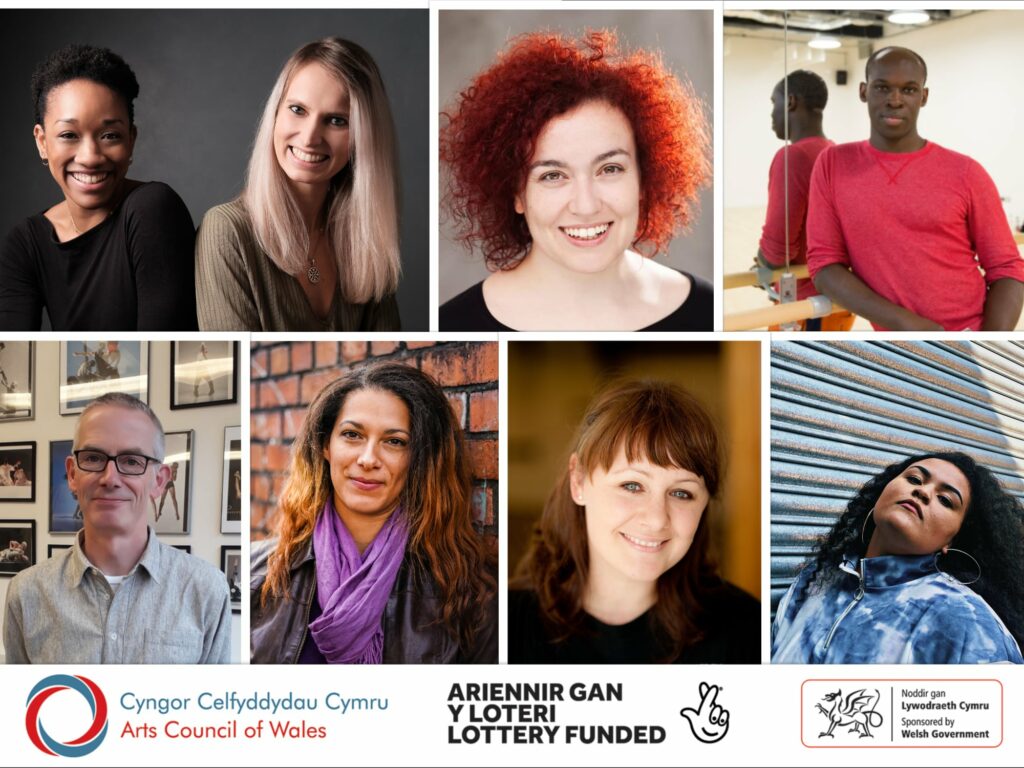
The programme is in partnership with Stephanie Back, Krystal Dawn Campbell, Eädyth Crawford, Matthew Gough, Chris Ricketts, and Ballet Cymru, The programme places anti-ableist actions and perspectives at the centre of developing the next generation of movement artists in Wales. Along with that, we’re working on an Erasmus+ project; a partnership between Finland, Latvia and Wales. It is a transnational, interdisciplinary project that aims to explore and exchange practices on using creative body-based approaches for social inclusion and community building. And finally, we’re collaborating with a Bermudian organisation on a research and development project. The History of Us | Ein Hannes Ni explores how artists from different backgrounds, cultures, and languages share their artistic process and practice through discussions and dance sessions.
Kokoro Arts has choreographed a new dance film for the National Dance Company Wales, Youth Dance company, The Associates. The project has been created entirely online and is inspired by the work of Artes Mundi 9 exhibiting artist, Prabhakar Pachpute. His practice “reflects on the working conditions, relentless excavation, unequal social development and land politics in his home state Chandrapur, known as ‘the city of black gold’.” Could you see any links between Prabhakars approach to Chandrapur and Wales in your work with the Associates?
Similarly to Prabhakar’s artistic approach to his work, we wanted the film we choreographed for ‘Now Begin’ to address issues that are pressing and important to young dance artists in Wales. In the film, they dance and speak about the change they want to see in the world – it felt really important to give them a platform to be seen and heard.
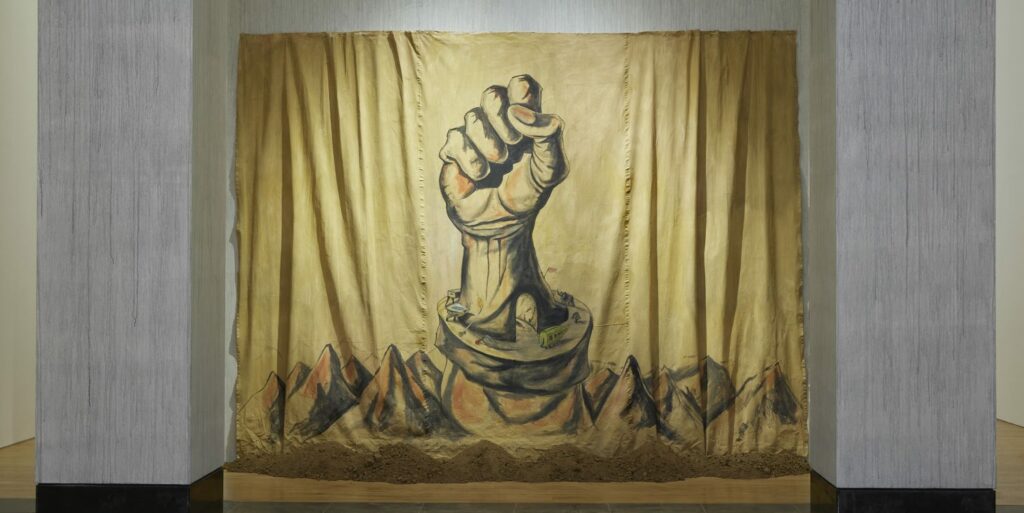
As the project has been delivered entirely online due to Covid-19 how did you approach the choreographic process and working with the young dancers?
It was important to us to make sure that the creation process was as engaging and interactive as possible. Collaboration with the Associates was essential to us – we really wanted to give them ownership over their creative process as well as the finished work.
While we had previously engaged with some of the Associates, it was our first interaction for most of the Associates. We spent time in the first session finding out about who they were as people and as artists; what was important to them about not only this process, but also their artistic development and ambitions.
We facilitated time and space for them to comment critically on each other’s choreographic work within the session using Zoom’s chat function. In giving feedback, artists engage quite differently with the work. The critique isn’t about higher legs or more stretched ankles, it’s about expression and movement; how the work is created, how it comes across and translates to audiences. Even the filming of their choreography allowed for them to engage further in the creation process. Each Associate chose their own filming location, choreography, and camera shots.
The NDCWales Associates are one of a number of youth dance organisations in Wales. Do you feel the opportunities offered by these groups are of value?
Yes, I believe that these programmes are of great value. They can connect young people to dancers from other dance schools, other parts of Wales, and the UK, in a way that helps them to engage differently with their practice and development.
Youth dance organisations have the ability to offer young artists a space to learn from different dance artists who come to teach and to create work on them and to learn different ways of moving from what they’re used to.
However, each of these programme’s could do with a lot more boldness in the range of dance styles they are offering and the range of artists that interact with the youth artists. I would love to see a wider diversity of young artists audition and accepted onto these programmes. This would offer young artists a diversity of lived experiences to interact, engage with, and learn from.
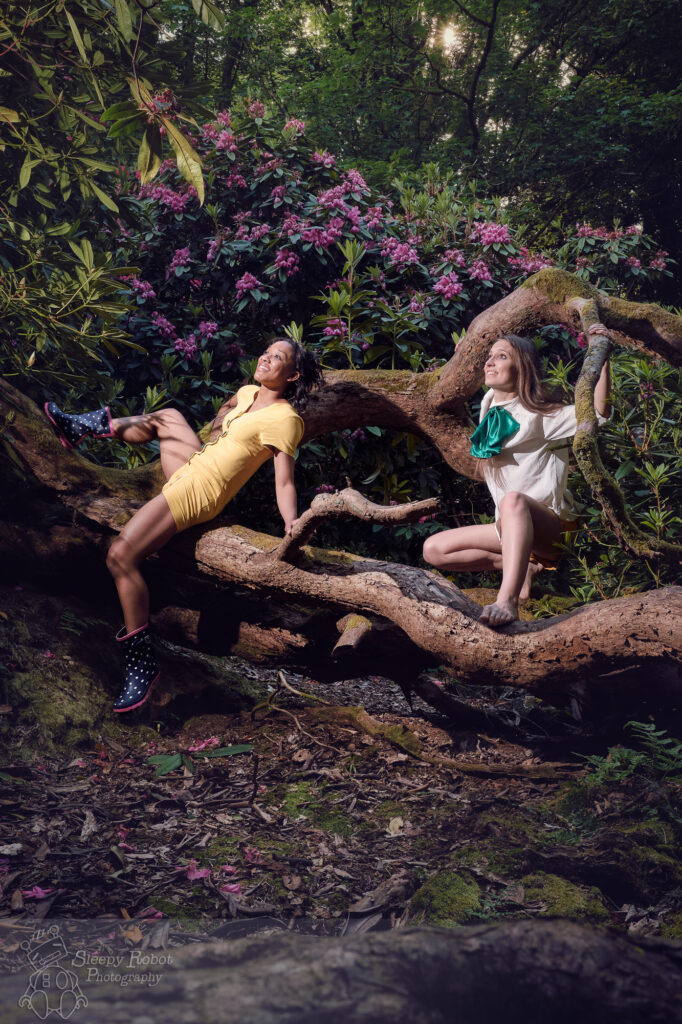
If a dancer wanted to stay and train in Wales and then pursue a career, what support system would you suggest they require in order to be able to do this?
- Access to dance classes that would develop their skill-set continuously.
- Sustainable ongoing support for their professional development rather than one-off engagements that have no continuity.
- Mentorship and coaches to support their artistic practice and help them reflect on their career development.
- Platforms and events that allow them to test their thoughts and creative practice at a variety of levels.
- For organisations and project funded companies to regularly advertise for new dancers rather than turning to those they already know.
- For organisations and project funded companies to have more paid apprentice positions or opportunities to observe and engage with them.
- More public discussions about dance in Wales
- A strategy for dance in Wales that helps the sector develop and therefore offer opportunities for those who want to remain here.
- Undergraduate training would be a good option but isn’t necessary to become a professional dancer.
Are there any examples of training systems or support networks that exist in other nations that Wales could look to utilise?
This is difficult to answer, because each nation’s system reflects a particular context. What works in one place might not work in another.
In Latvia The Latvian Academy of Culture offers an undergraduate degree programme in contemporary dance with an intake every 4 years, which offers an increased intensity and focus to their education; however it does leave gaps in graduate years.
Irelands Step Up dance project for graduates aims to bridge the gap between dance education and professional contemporary dance practice in Ireland.
CAT schemes in England show how additional opportunities can be facilitated, but we would need to be careful that they don’t only offer routes to conservatories or serve those more privileged.
What does Wales do well in dance or cultural training and delivery?
There’s a great commitment to bilingual and multilingual work, including an emerging commitment to British Sign Language.
Wales has created an environment that allows visiting (short project) artists to feel like they want to stay here – live, work, and feel at home.
There’s a rich diversity of dance styles in Wales from Welsh folk dance, concert dance, and contemporary dance, to a wide range of cultural, social and competitive dance practices.
There’s a commitment to community dance in Wales which provides a framework of dance for everyone.
The Wales dance sector attracts international interest; for example, events organised by National Dance Company Wales, Groundwork Pro and Cardiff Dance Festival as well as Wales based dancers who have an international presence on their own.
You are both parents of young children working in the arts. Given that you are both freelance artists and parents the Lockdown period must have been very challenging for you in combining the demands on your time? How did you approach this?
Krystal: For me, it was the same when I decided I would be a parent in the first place. I decided not just that I was going to do it, but that I could do it. That decision doesn’t change what happens, but it changes how I experience what happens. Those days that my son needs me even more than usual, I leave work alone and make myself available to him. I decide that that’s not a work failure but a moment to enjoy rest and connection. Motherhood has made me far more efficient in my work. I’m not lethargic, because I don’t have the time to be. I am definitely more tired than I was before I had a child, but I’m also more passionate, I’m more eager, and I have far more resilience. I decide that I can do it, and that doesn’t mean I always do it perfectly but it means I don’t give up.
Practically, I take on the work that I can do and I’m honest about the work that I can’t do. I find opportunities to get work done at odd hours. It’s about being really flexible. Learning that I could schedule my emails has revolutionised my working! If anyone ever gets an email from me at 8am, it’s because I stayed up the night before really late, responding to all of my emails. Making lists helps so much. I have pages and pages of to-do lists – this means that the tasks are out of my head so I don’t have to feel overwhelmed by them. I can look and decide what’s important to do each day. Another thing that helps a lot is having deadlines for when my work is due. This helps me to know when I need to focus on a specific task and when I have time to focus on other tasks; it’s essential to my wellbeing.
Gundija: The lockdown period, especially the very beginning of it was challenging, yes. There were suddenly new roles I felt I needed to fulfil as a mother whilst trying to work at the same time. What helped me was the repeated reminder (that came from myself, family and even social media sometimes) that I don’t have to be able to manage everything at once. So I learnt how to manage my time better (or tried to) – for example, when there were work meetings, I would tell myself it’s OK if my daughter has longer screen-time so that I can focus. Being present as a mother, for me is a priority, so whenever my attention is split and I’m neither with my daughter nor fully at work, I get stressed. The only way to avoid that is to clearly set times/moments when I know I will focus mainly on work and be less present as a mom and then have clear times where I’m fully engaged in activities with my child. And similar to Krystal – making to do lists helps me as well. It lets me get out of the chaos in my head when everything feels ‘too much’ and see all I need to do nicely organised on a paper.
Given the challenges you described above what support would help Creatives in Wales with young familes?
Flexible working hours and the ability to have children in the room whenever safe. Working with people who try to understand the unpredictability of life with a child would help reduce the guilt often felt by working parents. Having the ability to job-share more often would also be really great – that way a parent can engage with less worry about child-care costs. Where possible, including child-care as access costs would make a massive difference. Often, in order to work and have your child cared for, you end up losing money. Even a contribution towards child-care costs would make a big difference.
It would also be great, if there were a few parents, that the project or organisation could facilitate a shared child-care arrangement on the premises. Even something more informal would be a huge support. Potentially a child-minder who could take on a few children with the organisation/project covering a portion of the costs.
Get the Chance works to support a diverse range of members of the public to access cultural provision. Are you aware of any barriers that creatives in Wales face? If you are, what might be done to remove these barriers?
Despite some changes, there is still systemic excluding around multiple characteristics. The system needs to act on equality not just talk about it.
Cultural Contracts and Arts Council Wales requirements for Portfolio organisations are a step forwards, but there needs to be deep thinking and radical doing to shift our perception of who is and who can be an artist.
A big issue is that not enough new job posts are being advertised, so those who are most marginalised are at a constant risk of precarious work, (hourly paid staff, fixed contracts, not secure in their position) so they don’t have time and space to develop their artistic practice.
With the roll out of the Covid-19 vacancies, the arts sector is hopeful audiences will return to venues and theatres. If theatres want to attract audiences what do you think they should do?
Gundija: I don’t think Vaccine Passports are a good idea. I have found live streaming performances alongside live events works well, so those who cannot attend physically, can still access it. It would be good to organise events for different specific audiences – perhaps have a coach that would pick up a group of members from a specific area. I think Venues should lobby the government so that our return to theatre spaces can be equitable. Perhaps there are ways of reducing costs for people who might struggle to attend or engage? And I think co-creating with people and communities might help us return together in a sustainable way.
Krystal: I think venues and theatres should continue to get even more creative about how they offer arts performances and engagement opportunities to audiences. Clearly outlining safety measures in place, more performances in public spaces, and shorter performances to offer more audiences an opportunity to engage safely.
It’s great to see many venues and theatres taking advantage of their outdoor spaces to engage audiences safely.
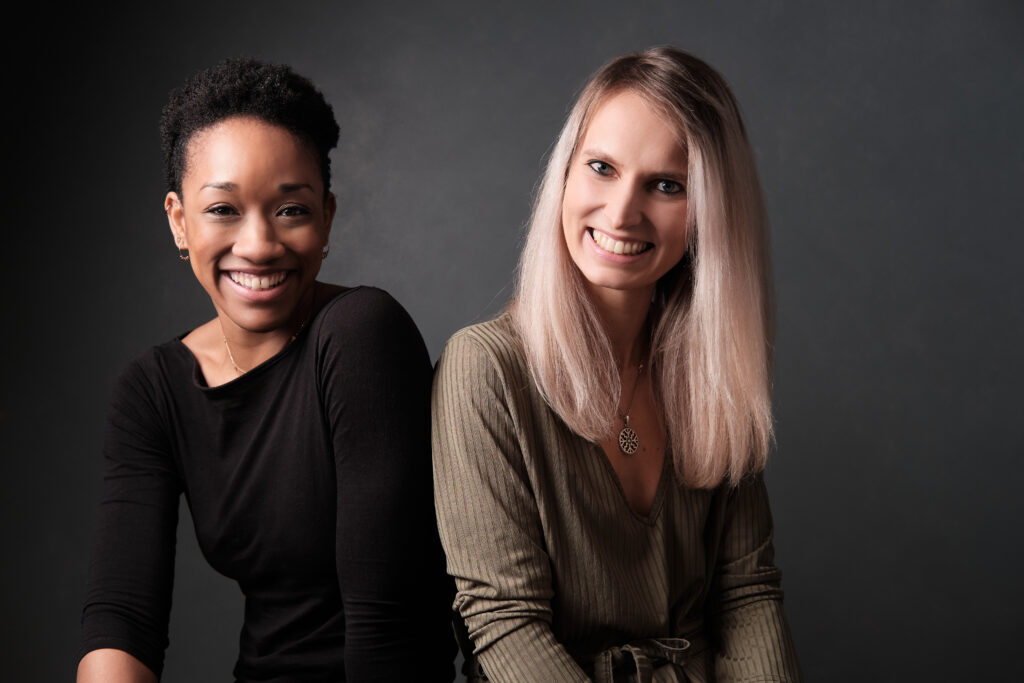
If you were able to fund an area of the arts in Wales what would this be and why?
Gundija: My priority would be to fund continuous support for early career artists. A scheme that would provide mentoring and opportunities for them to develop their artistic practice, give space to share their work and learn how to reflect on their practice and critically discuss it.
Krystal: I would fund disability arts. It’s important to me that all people are able to access and engage in the arts. I believe that the most effective way to develop and innovate as artists and as a sector is to engage closely with those who are different from us. Disability arts, and ensuring a diversity of disabled people are a part of this, would ensure a wider diversity of voices sharing and imparting into the sector, strengthening us all as well as developing audiences in Wales and beyond. I would love to see Wales become leaders in innovative disability arts. So often, within disability arts, people are still marginalised and forgotten. I am passionate about seeing Wales changing this – not becoming complacent but continuing to push towards more inclusion and an active respect and appreciation for difference.
What excites you about the arts in Wales?
Gundija: What excites me the most is definitely the potential I can see and feel in the Arts sector in Wales. Potential for the sector to grow, develop and co-create a Welsh identity that’s built on a strong support network for one another, diverse voices and inclusivity.
Krystal: I’m really excited about Theatr Iolo’s solar powered travelling theatre and the potential long-term possibilities for this kind of touring and showcasing work.
Aubergine Cafe’s unyielding commitment to offering opportunities and development to neurodivergent people.
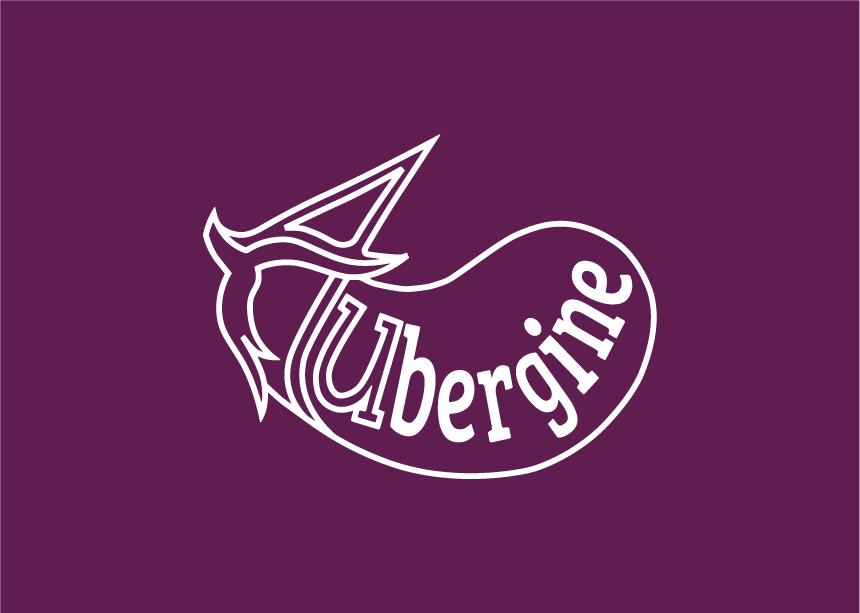
Literature Wales and National Dance Company Wales’ cross artform collaboration for Plethu/Weave; their commitment to offering a wide range of artists the opportunity to be commissioned and to collaborate.

Articulture Wales’ consistent commitment to offering opportunities to under-represented artists.

Ffilm Cymru offering opportunities to develop a new generation of diverse film-makers.

Arts Council Wales’ Connect and Flourish funding strand – we need more real collaboration in the sector and even more so need a stronger commitment to Black, disabled, and Welsh speaking people.
Music Theatre Wales’ New Directions Programme which will address the urgent need in opera to diversify the experiences and voices and the types of people who engage and make opera.
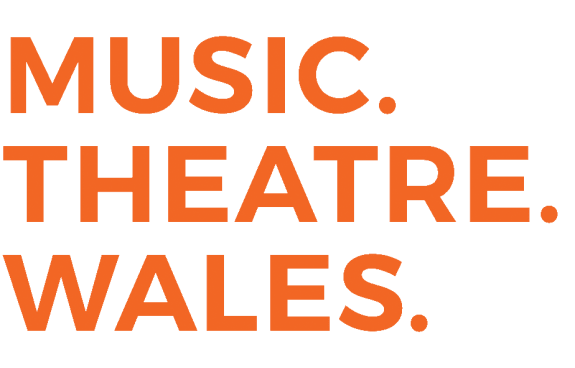
Yvonne Murphy’s co-creation and curation of new forms of engagement with democracy with 16-24 year olds on her Democracy Box project.
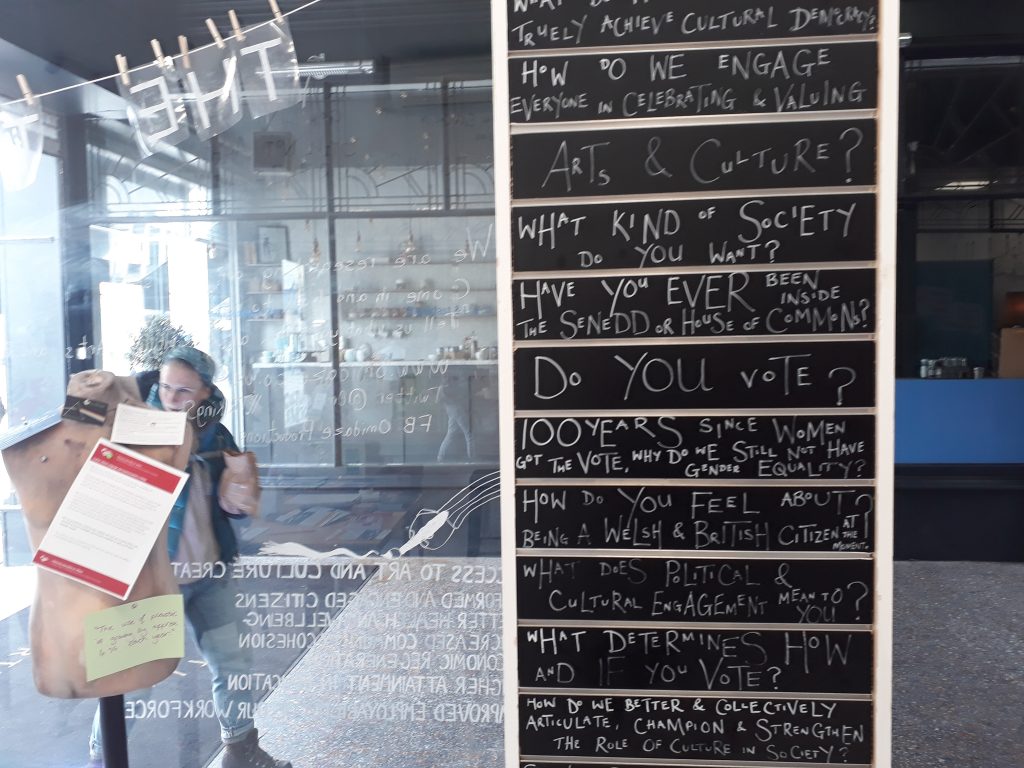
The Wales Dance Network|Rhwydwaith Dawns Cymru bringing the dance sector together.
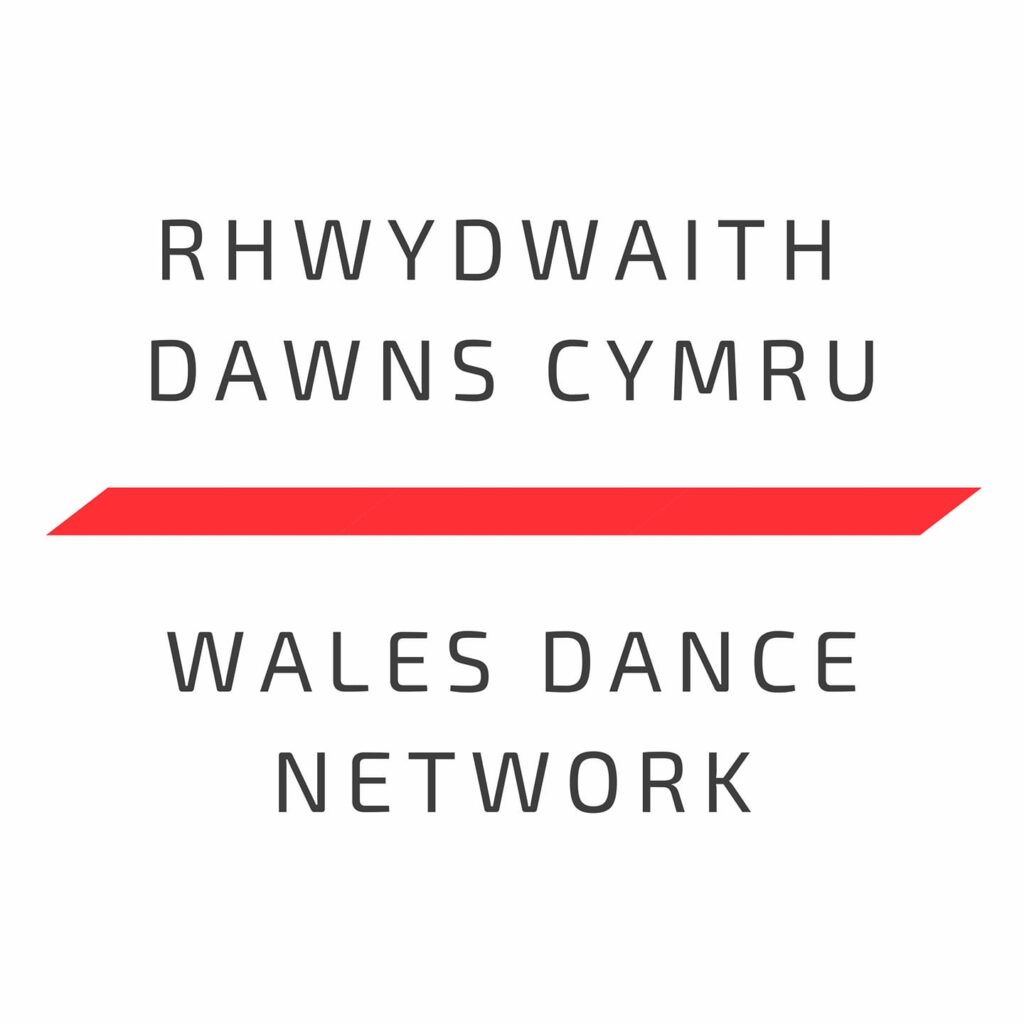
What was the last really great thing that you experienced that you would like to share with our readers?
Our Voice Network | Rhwydwaith Ein Llais sharings have been an incredibly valuable and enjoyable space to be a part of. I feel that’s exactly what the sector needs – informal sharings of artist practices, a safe, supportive space to listen to artistic process and to ask questions. Each month this space is a place to enjoy the beauty of being artists; and each month the value of being a part of this space is clear.
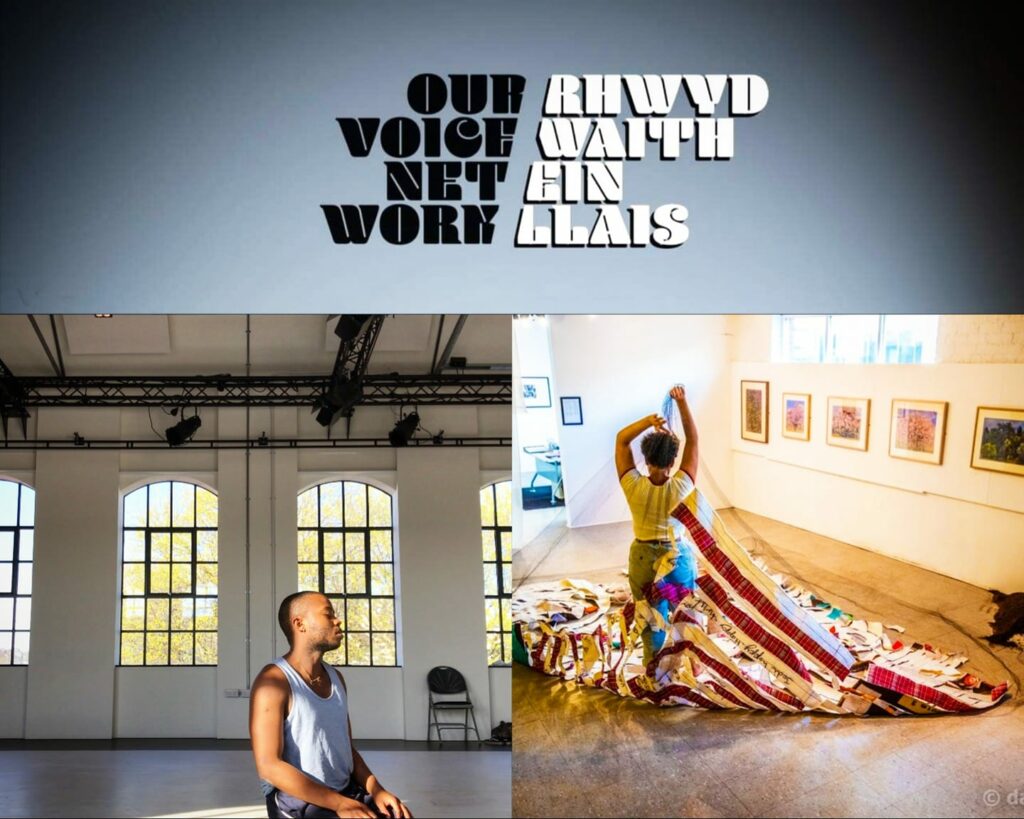
Thanks for your time.
Get the Chance supports volunteer critics to access a world of cultural provision. We receive no ongoing, external funding. If you can support our work please donate here thanks.

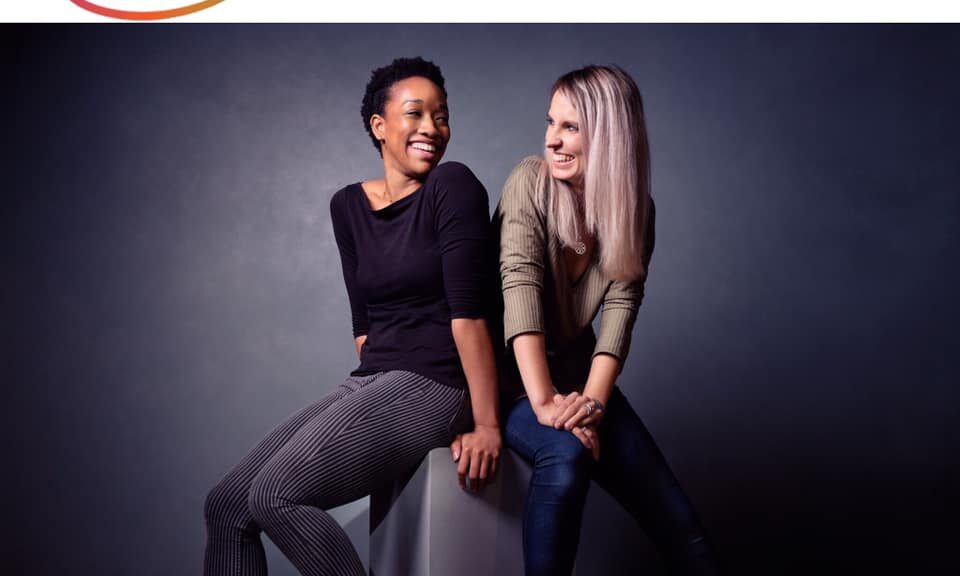
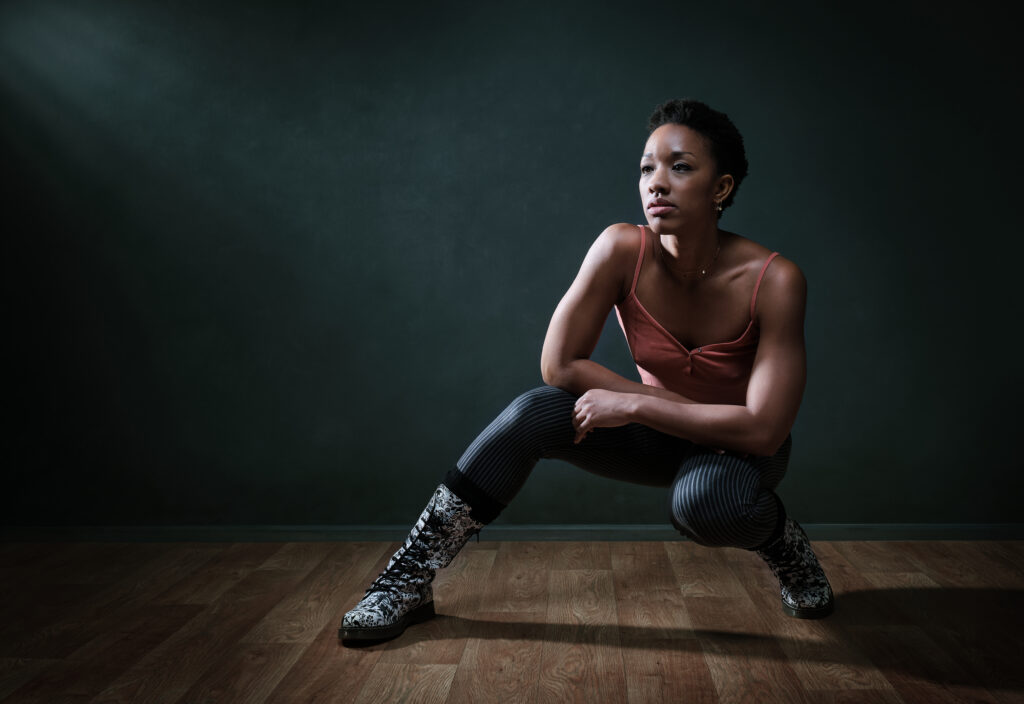
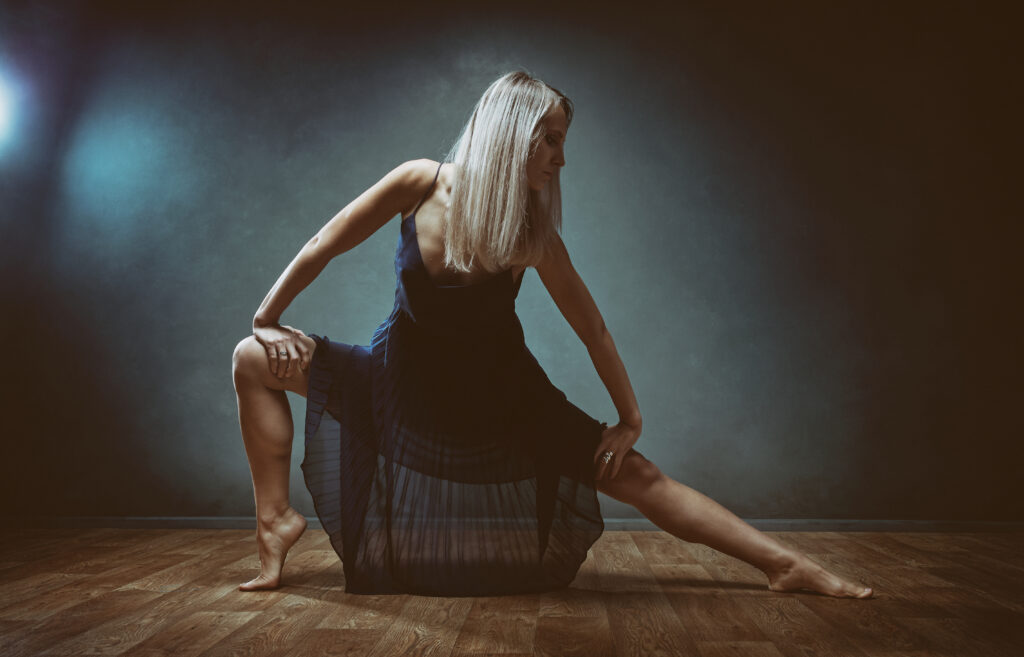
One thought on ““There’s a commitment to community dance in Wales which provides a framework of dance for everyone.” An Interview with Kokoro Arts Ltd”
-
Pingback: "Dance in Wales needs to have an equal place in how we see our cultural heritage. " An interview with dance artist Gwyn Emberton. - Get The Chance
Get The Chance has a firm but friendly comments policy.